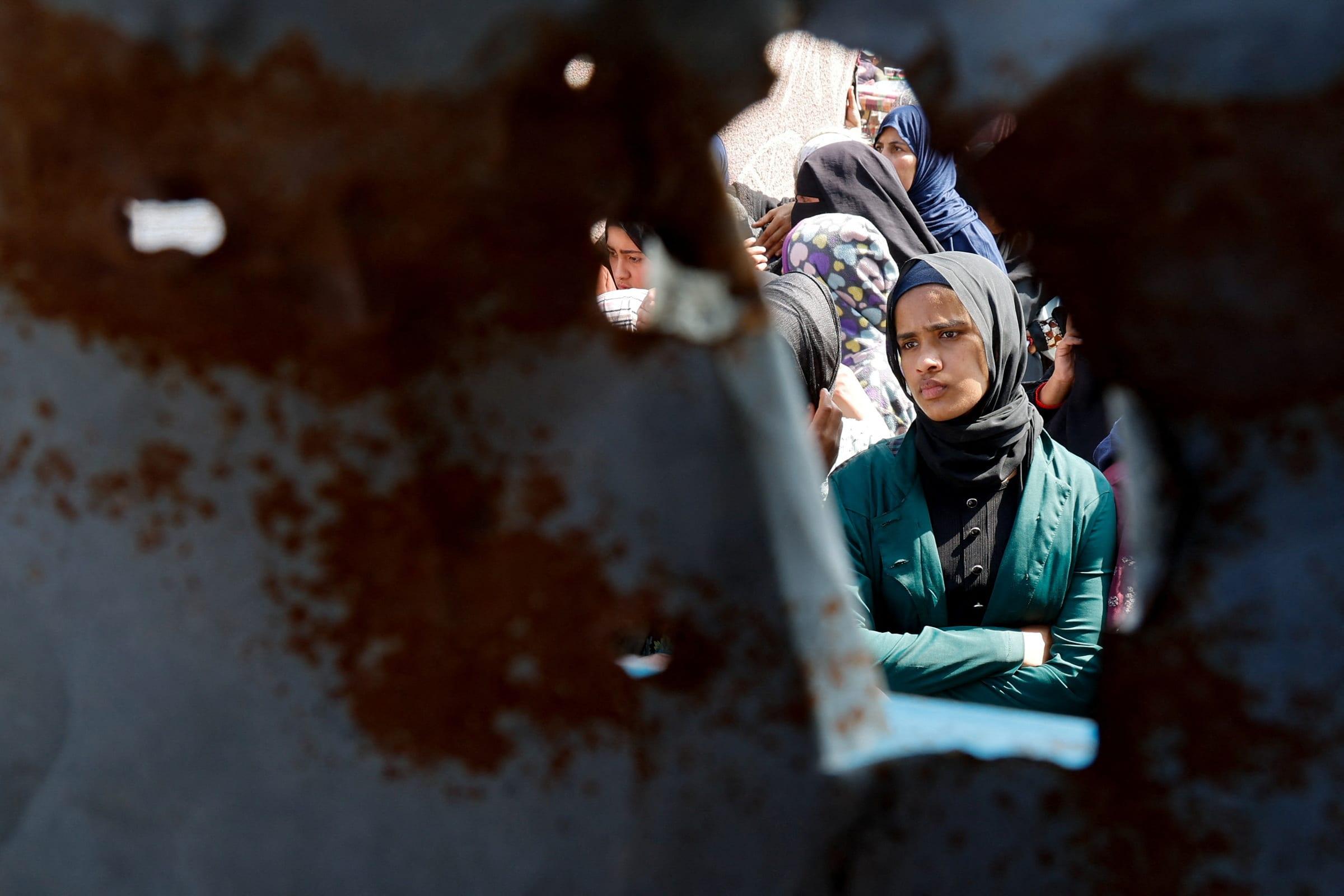
In the chaotic landscape of conflict zones, journalists serve as the crucial link between the realities of war and the outside world. Yet, in places like Gaza, this vital role has come under unprecedented threat. As violence escalates, reporters who strive to uncover and share the truth often find themselves in the crosshairs, facing targeted attacks that not only endanger their lives but also undermine the very foundation of democracy. The alarming trend of journalists becoming targets in armed conflicts raises pressing questions about who will report the truth when those dedicated to unveiling it are silenced.
The recent actions by Reporters Without Borders highlight the urgent need for accountability in the face of systemic violence against media professionals during the Gaza conflict. By filing explosive complaints with the International Criminal Court (ICC), the organization underscores the grave implications of this targeted aggression, framing it as a potential war crime. As we delve deeper into these complaints and the broader impact on truth reporting, it becomes increasingly clear that preserving journalistic integrity is imperative. Only through the protection of media professionals can we hope to maintain a comprehensive and accurate understanding of the realities unfolding in conflict zones.
Understanding the implications: The vital role of journalists in conflict zones
Journalists serve as the eyes and ears of the world in conflict zones, providing essential information that shapes public understanding and influences global opinion. Their reporting brings critical stories to light, often at great personal risk. When journalists report from the front lines, they not only recount the events but also give voice to the oppressed and marginalized, exposing injustices that might otherwise go unnoticed. The work of journalists is crucial in creating an informed citizenry, and without their courage and dedication, the truth becomes obscured by propaganda and misinformation.
However, the targeting of journalists in places like Gaza reveals a dire and alarming trend. As they face violence and intimidation, the ability to gather and disseminate accurate information diminishes significantly. This systemic attack undermines not only journalistic integrity but also the broader fight for human rights and accountability during conflicts. When journalists become the targets, the very foundations of truth reporting shake, leaving communities and the world at large in the dark about the realities of war—a consequence that reverberates long after the conflict subsides.
A closer look at the complaints: Reporters Without Borders challenges systemic violence against media professionals
Reporters Without Borders (RSF) has filed explosive complaints with the International Criminal Court (ICC) that expose the systematic violence faced by media professionals during the ongoing conflict in Gaza. These complaints detail a series of aggressive attacks on journalists, highlighting incidents where reporters have been directly targeted in their efforts to document the realities of war. RSF argues that these actions constitute war crimes, undermining not just the safety of those in the field, but also the very principles of freedom of expression and the right to seek and disseminate information. By bringing these allegations to the forefront, RSF aims to hold accountable those responsible for these egregious violations and to shed light on the broader implications of such aggression against truth-tellers.
The complaints outline specific cases of violence against journalists, detailing assaults, detentions, and killings that have become alarmingly common in conflict zones like Gaza. This pattern of targeting media personnel not only endangers their lives, but it also hampers the flow of accurate information to the public. RSF’s efforts underscore the urgent need for international bodies to recognize these attacks as part of a broader strategy to suppress dissent and manipulate public perception. By challenging the systemic violence against journalists, RSF seeks to ensure that those who risk their lives to report from the frontlines are protected and that their work continues to shed light on the truth in times of war.
The impact on truth reporting: Why preserving journalistic integrity matters during times of war
In times of war, the integrity of journalism serves as a crucial lifeline to the truth. When journalists become targets, their ability to report objectively diminishes significantly. The outcome is a landscape susceptible to misinformation and propaganda, where unchecked narratives can drastically shape public perception and international response. The violence against media professionals in Gaza underscores the dangerous precedent of silencing those who seek to document events accurately, leaving communities without reliable information during critical moments. This dynamic not only endangers the rights of journalists but also places the public at risk, as they are deprived of authentic accounts of the unfolding realities on the ground.
Moreover, preserving journalistic integrity is essential for accountability. It ensures that the actions of authorities, both local and international, are scrutinized and brought to light. The reports from journalists have the power to influence humanitarian efforts, sway political decisions, and ultimately affect the course of human rights advocacy. When journalists are targeted, the narratives they provide become skewed or lost entirely, allowing violations to go unchallenged. Support for media independence during conflict is vital; it safeguards the truth and fosters an informed society, reinforcing the critical role that journalism plays in upholding democracy and justice, even amid violence and chaos.